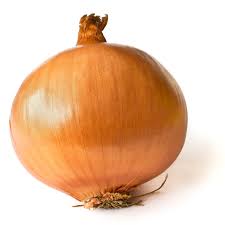记忆方法
将“onion”拆分为“o”和“ni-on”。想象一个洋葱的形状,它中间是“ni”,周围是“o”形的壳。这样的形象可以帮助记忆这个词的意思是“洋葱”。
以上内容由AI生成, 仅供参考和借鉴
中文词源
onion 洋葱
来自one,一,-ion,名词后缀。比喻用法,因洋葱包在一起而得名。
英语词源
- onion
-
onion: [14] The usual Old English word for ‘onion’ was cīpe (a borrowing from Latin cēpa, source also of English chives and chipolata), but it also had ynne. This came from Latin ūniō, a word of uncertain origin but possibly identical with ūniō (a derivative of ūnus ‘one’) which denoted a ‘single large pearl’ (according to Julius Moderatus Columella, ūniō was a farmer’s term, and one can well imagine a proud onion-grower comparing his products with pearls).
An alternative explanation, also based on a derivation from ūnus, is that the word is an allusion to the ‘unity’ formed by the layers of the onion. Ynne had died out by the Middle English period, and onion represents a reacquisition of the word via Anglo-Norman union.
=> one - onion (n.)
- early 12c., from Anglo-French union, Old French oignon "onion" (formerly also oingnon), and directly from Latin unionem (nominative unio), colloquial rustic Roman for "a kind of onion," also "pearl" (via notion of a string of onions), literally "one, unity;" sense connection is the successive layers of an onion, in contrast with garlic or cloves.
Old English had ynne (in ynne-leac), from the same Latin source, which also produced Irish inniun, Welsh wynwyn and similar words in Germanic. In Dutch, the ending in -n was mistaken for a plural inflection and new singular ui formed. The usual Indo-European name is represented by Greek kromion, Irish crem, Welsh craf, Old English hramsa, Lithuanian kremuse.
The usual Latin word was cepa, a loan from an unknown language; it is the source of Old French cive, Old English cipe, and, via Late Latin diminutive cepulla, Italian cipolla, Spanish cebolla, Polish cebula. German Zwiebel also is from this source, but altered by folk etymology in Old High German (zwibolla) from words for "two" and "ball." Onion ring is attested from 1952.
Onion dome attested from 1956; onion grass from 1883; onion skin as a type of paper from 1892. Onions, the surname, is attested from mid-12c. (Ennian), from Old Welsh Enniaun, ultimately from Latin Annianus, which was associated with Welsh einion "anvil."
权威例句
- 1. Fry for about 4 minutes, until the onion has softened.
- 煎4分钟左右,直到洋葱变软。
- 2. Mix the meat with the onion, carrot, and some seasoning.
- 把肉和洋葱、胡萝卜及一些佐料搅拌在一起。
- 3. Add the onion and cook gently for about 5 minutes.
- 把洋葱加进去,用文火煮大约5分钟。
- 4. Peel the onion and cut it in half lengthwise.
- 剥掉洋葱皮并把它纵向切成两半。
- 5. When the oil is hot, add the sliced onion.
- 油热了后,放入切好的洋葱。

